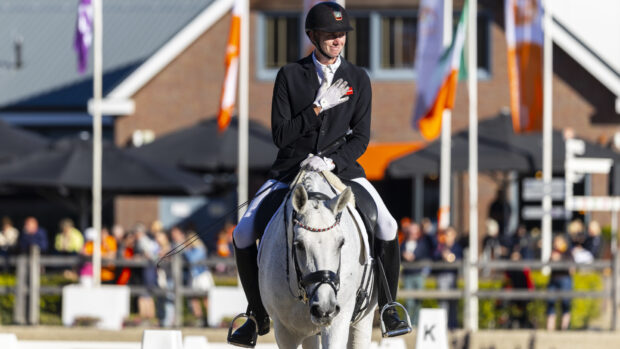For an event that only comes round every four (or five…) years, a month is a surprisingly long time on the Olympic clock.
Teams of three are here to stay for Paris 2024, riding is out of the modern pentathlon from Los Angeles 2028 – whose place in the Games at all after Paris hovers beneath a giant question mark, and there are a new set of hurdles to cross to remain in the Olympics at all in the brave new world of Agenda 2020+5. Keeping up?
I’ll start by addressing the teams-of-three decision for Paris 2024, passed at the FEI general assembly in November.
Whichever side of the fence you sit on, and I agreed it is a grey fence at that, to me it sparked a larger question on the way these massive, sport-changing decisions are made.
Democracy needs transparency to work. If we cannot see who is making the decisions, it becomes impossible to hold them to account.
In simplistic terms, democracy works in the Britain by elected MPs representing the interests of their constituency. Their voting decisions are rightly public.
So I struggle to understand how decisions on the future of our sport can be made by a secret vote. Perhaps there are merits to this system and I would be keen to hear what these are.
Riders do not decide the future of the sport. They can lobby, advise, give evidence and push for change in various ways. But the voting comes down to national federations.
I asked the FEI for a breakdown of which nations voted for or against teams of three at the Olympics and Paralympics. It replied that it was a secret ballot and that details of the way individual countries voted was not available.
British Equestrian was more accommodating. It voted against teams of three, and gave reasons why (news, 25 November).
Given the impact these votes have on riders’ lives and the future of the sport globally, does the FEI not owe it to equestrians to offer full transparency in who is making these decisions? Would that not lead to improved debate and understanding, which would surely benefit the sport globally? The current system is frustrating and riders need to feel that they – and their horses – are being heard and represented. It is their sport, after all.
The secrecy of the vote on removing riding from modern pentathlon was one of the (many) criticisms its governing body, the UIPM, faced in recent weeks. Transparency is key to trust, without it, what hope is there?
Plenty question why the FEI “keeps changing things”. The basic answer is its hands are tied. No sport’s place is guaranteed in the Olympics. It’s a case of adapt or go.
Equestrian is one of the 28 sports proposed for inclusion at Los Angeles 2028 – a welcome step. But that is just the start. Boxing, weightlifting and modern pentathlon are not (at present), a warning sign of what happens to sports that do not meet the International Olympic Committee’s requirements.
Olympic Agenda 2020+5 sets out “six areas for the review of the disciplines” before final decisions are made for each sport. These are: cost and complexity; popularity and host country interest; uniqueness, universality, gender equality and relevance for young people; best athletes and athlete safety; integrity and fairness; and environmental sustainability.
Equestrian sport has so much to give and ticks many of these already, though it cannot afford to be complacent. The world is changing and our sport must really listen to its players and adapt if it is to survive and shine.
You might also be interested in:
[collection name=”small”]
Horse & Hound magazine, out every Thursday, is packed with all the latest news and reports, as well as interviews, specials, nostalgia, vet and training advice. Find how you can enjoy the magazine delivered to your door every week, plus options to upgrade your subscription to access our online service that brings you breaking news and reports as well as other benefits.




